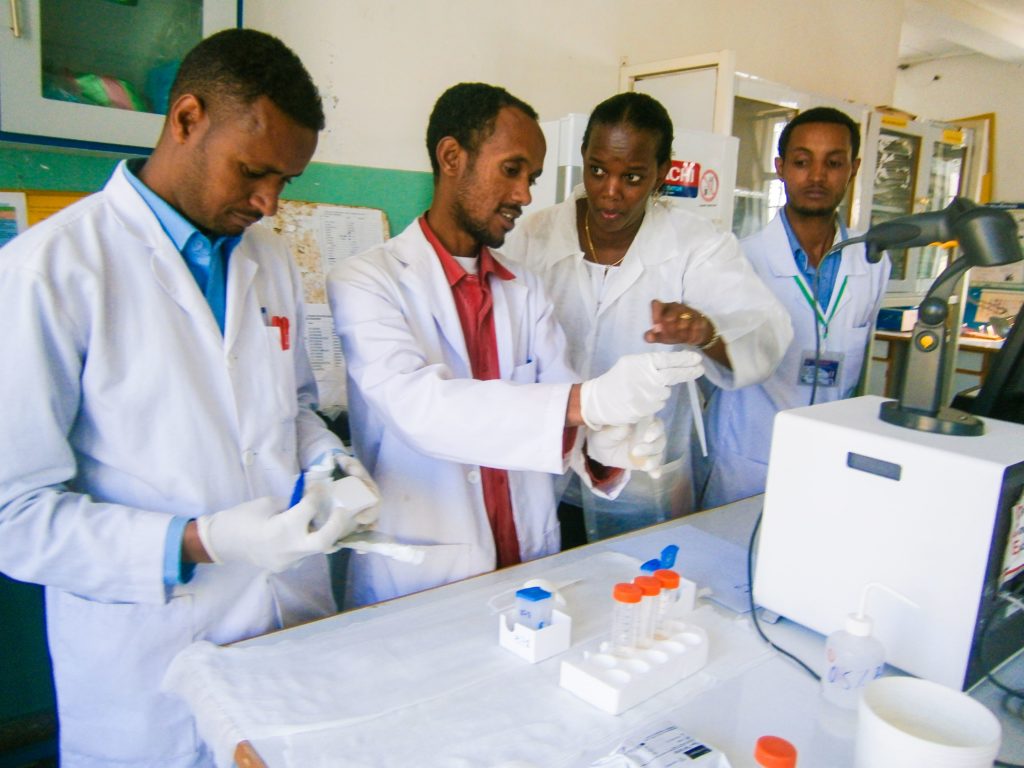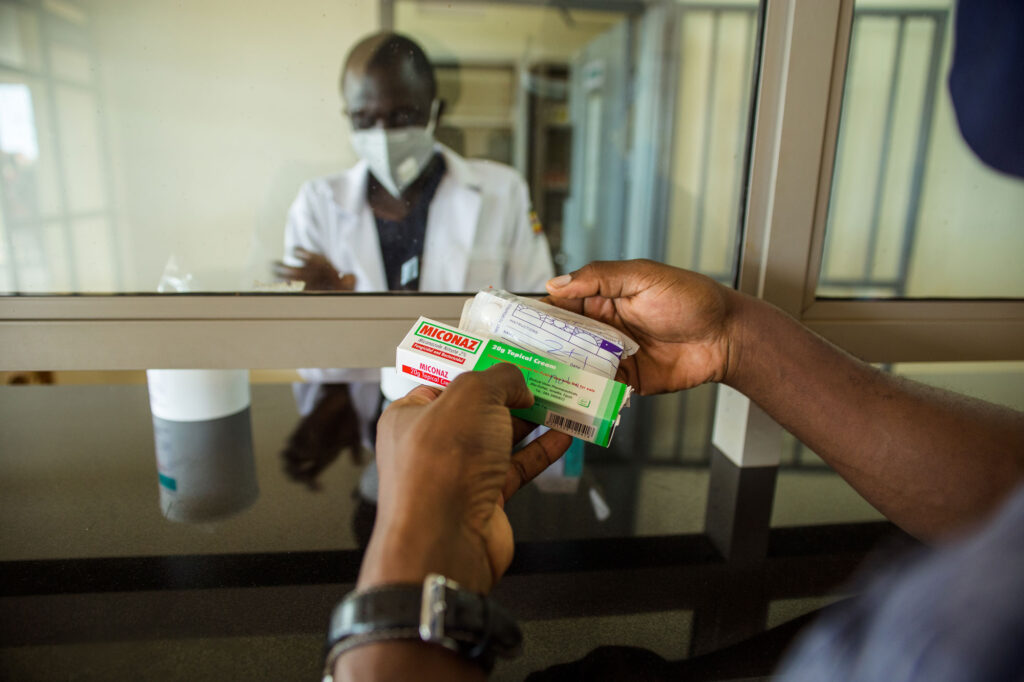Resources
Resources
In partnership with countries around the world, we have developed hundreds of resources to help strengthen the foundations of health systems. Please search our Resources to learn more about our publications, research, programmatic approaches, tools, and learnings.


Strengthening Supply Chain and Pharmaceutical Systems for Sustained Health Impact
For more than three decades, Management Sciences for Health (MSH) has partnered with countries to build high-performing supply chains that ensure reliable access to safe, effective, quality-assured medicines and people-centered pharmaceutical services. MSH takes a holistic approach that fosters country-led innovation, whole-of-society engagement and collaboration, private-sector engagement, and effective leadership and governance. This ensures both reliable, affordable access to and sustainable delivery of medical products when and where they are needed and their appropriate use to save lives and improve health.
Topical
Supporting local ownership of transition processes: a key pathway to sustaining the HIV response
Globally, an increasing number of countries have made progress towards HIV epidemic control, yet decreasing donor funding and insufficient domestic in…
Reflections on the Lancet Commission on Investing in Health’s Global Health 2050 report
Capacity Strengthening using Digital Tools: A Lifesaving Investment in the Health Workforce
Teen Clubs Help Retain Adolescents In HIV Care And Treatment
Malawi has a significant youth and adolescent population, with nearly two-thirds of the country’s estimated 17.2 million people under the age of 24. Y…
A National Study: Evaluating the Effectiveness of Option B+
In 2011, Malawi pioneered an ambitious test-and-treat approach for pregnant and breastfeeding women, known as Option B+. Under this strategy, all HIV-…
Facility-Based Innovations Improve Linkage To HIV Treatment And Care
HIV has been a global challenge over the past several decades, particularly in developing countries such as Malawi, where adult HIV prevalence is abou…
Index Case Testing: A Promising Strategy for Achieving HIV Epidemic Control
Malawi adopted the 90-90-90 strategy as part of the National Strategic Plan to end HIV/AIDS by 2030 which calls for: identifying 90% of people living …
Integrating Comprehensive HIV And Cervical Cancer Services Saves Lives
Cervical cancer affects an estimated 527,624 women worldwide each year, killing more than half of them. About 85% of the global disease burden occurs …
Aiming for the Three 90s: Strengthening Malawi’s Response to HIV and AIDS
There are more than one million Malawians (HIV prevalence of 10.6%) living with HIV. Nearly 85% of people live in rural or hard-to-reach areas of the …
Fact Sheet: Improving Health Service Delivery in Malawi
MSH has been assisting Malawi since 2003 to strengthen health care systems, increase disease prevention education, reduce maternal and childhood morta…
Timely Testing Improves Early Infant Diagnosis of HIV Infection
Since adopting Option B+ in 2011, Malawi has made significant progress in identifying and treating pregnant women living with HIV, thereby reducing ve…
Improved Infrastructure Leads To Better Quality And Availability Of Health Services
Malawi is among the countries hardest hit by the HIV pandemic. The country has a national HIV prevalence rate of 10.6% of the adult population aged 15…
A Retrospective Survey of HIV Drug Resistance among Patients One Year after Initiation of Antiretroviral Therapy at Four Clinics in Malawi
Abstract In 2004, Malawi began scaling up its national antiretroviral therapy (ART) program. Because of limited treatment options, population-level su…
Nurse Management of HIV-Infected Patients
Abstract In the CIPRA-SA trial (July 3, p. 33), Ian Sanne and colleagues compared the outcomes of nurse-monitored patients with those of doctor-monito…
Positive Spill-Over Effects of ART Scale Up on Wider Health Systems Development: Evidence from Ethiopia and Malawi
Abstract Background Global health initiatives have enabled the scale up of antiretroviral treatment (ART) over recent years. The impact of HIV-specifi…